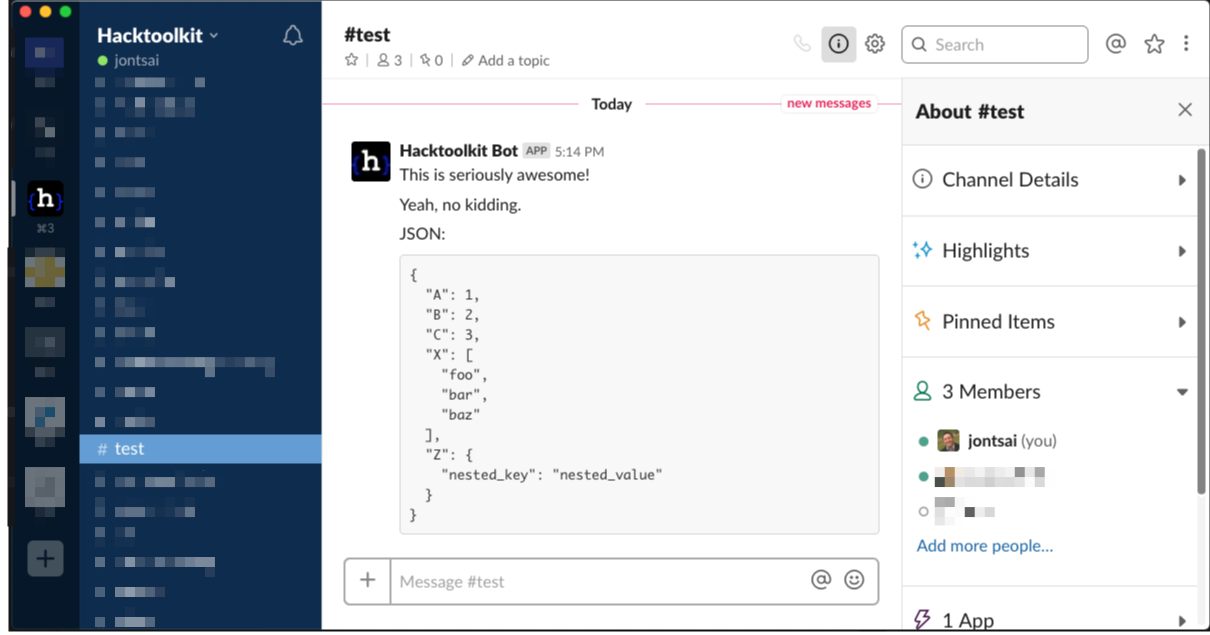Edit: This article also got published on the GoodAudience Blog.
I’ve been using println debugging since forever. It’s the best! It’s minimal, is the least surprising form of debugging, and allows you to set-it-and-forget it. I’ve also used interactive debuggers before, but when println debugging techniques are used effectively, I’d argue that step-through interactive debuggers are not necessary at all, and actually slow you down.
For years now, I’ve been using an evolved form of println debugging, which I affectionately call “Slack debugging,” and I’ve written various manifestations of utility/helper functions called slack_debug over the years.
This has been a close-kept secret for myself and select other teammates and colleagues who were curious to know what exact wizardry I was doing.
And now, for the first time, I’ve decided to clean up the solution, open-source it, and share it with the world.
Behold, the Power of “Slack Debugging”
In [1]: from htk import slack_debug
In [2]: from htk import slack_debug_json
In [3]: slack_debug('This is seriously awesome!')
Out[3]: <Response [200]>
In [4]: slack_debug('Yeah, no kidding.')
Out[4]: <Response [200]>
In [5]: slack_debug_json({'A':1,'B':2,'C':3,'X':['foo','bar','baz'],'Z':{'nested_key':'nested_val
...: ue'}}),
Out[5]: (None,)

And without further ado, Slack debugging is available here: https://github.com/hacktoolkit/python-htk and https://github.com/hacktoolkit/pyhtk-lite. (And for Ruby: https://github.com/hacktoolkit/htk-rb).
Love it? Hate it? Please share your thoughts and comments, or even better yet, submit pull requests to make it better!
